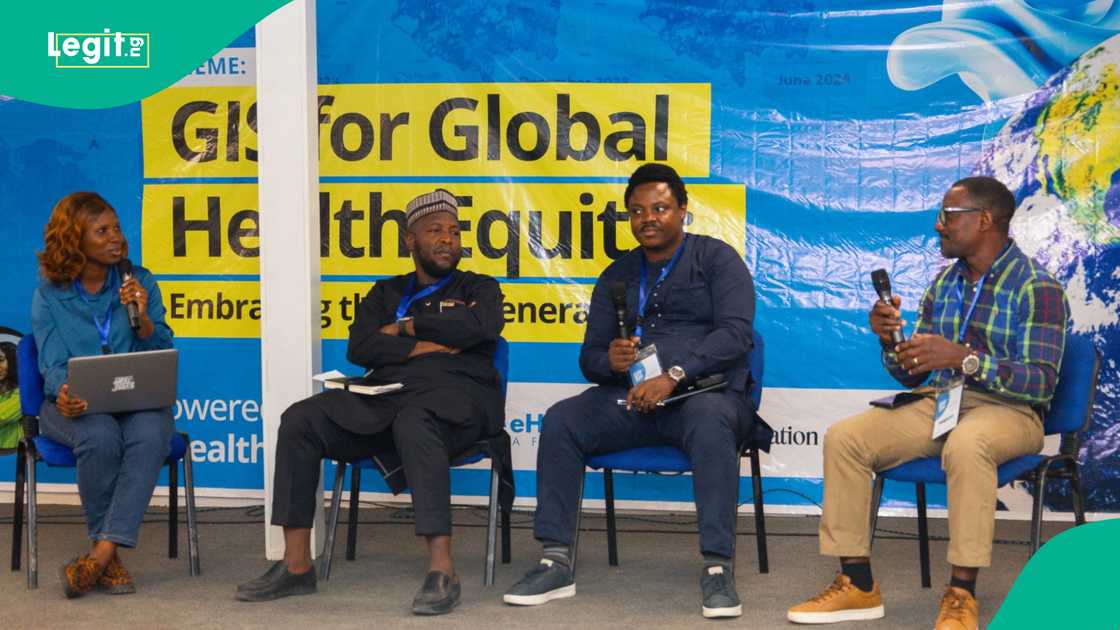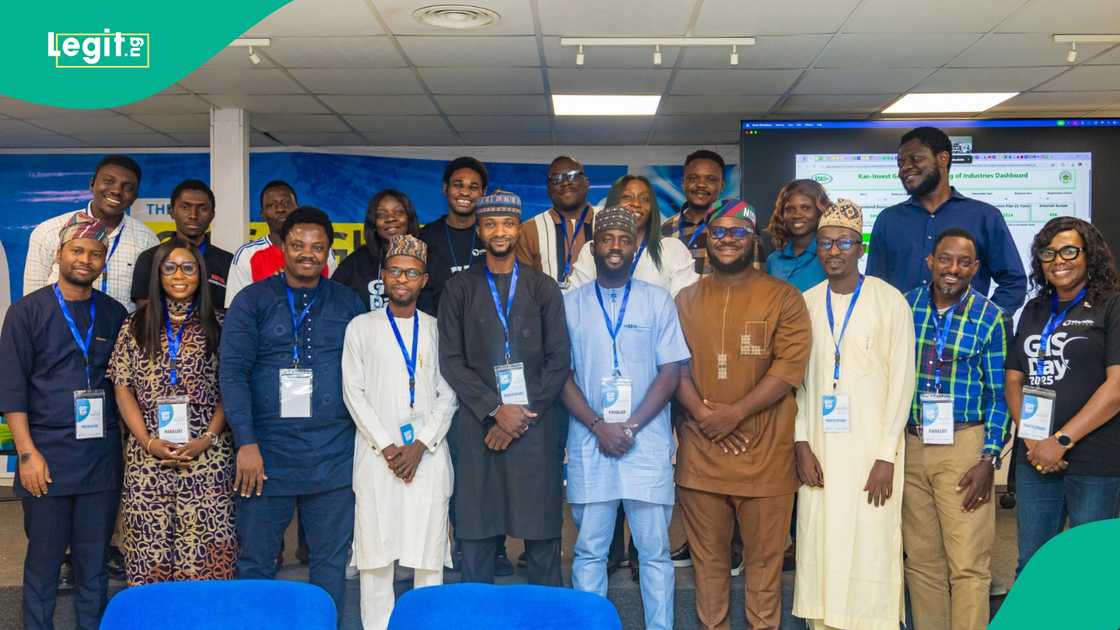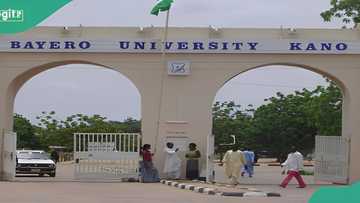2025 World GIS Day: Health Experts Explain Why Innovative Collaboration Is Important
- Health experts and other stakeholders have explained the importance of Geographic Information Systems (GIS)
- The experts spoke at an event organised by eHealth Africa to mark the 2025 World GIS Day
- Among others, the experts explained how GIS helps in disease eradication and health service delivery
Kano - eHealth Africa has highlighted the importance of Geographic Information Systems (GIS) in advancing health development.
At an event organised on Wednesday, November 19, to mark the 2025 World GIS Day, eHealth Africa's deputy director of Global Health Informatics, Abdulhamid Yahaya, called for stronger collaboration and innovative use of GIS to advance global health equity.

Source: UGC
Legit.ng gathers that the event, themed “GIS for Global Health Equity: Embracing the Geo-Generalist Era,” brought together innovators, health practitioners, researchers, and development partners committed to expanding the impact of geospatial technology across Africa.
Yahaya highlighted the role of GIS in shaping the future of health systems just as he reiterated the importance of cross-sector collaboration.
He noted that the theme for the 2025 World GIS Day reflects the critical role of GIS in driving global health equity.
His words:
“GIS is most powerful when health experts, technologists, policy makers, and community leaders come together, share knowledge, align strategies, and co-create solutions.”
2025 World GIS Day: Kano government speaks
In his remarks, Dr Dalhatu Aliyu Sani, director-general of Kano Geographic Information System (KANGIS), also emphasised the importance of multi-sector collaboration.
He also highlighted the progress that Kano state has made in geospatial infrastructure.
According to Sani, the renewed investments in enterprise GIS have strengthened Kano’s systems, which now generate over N750 million monthly in revenue compared to N50 million previously.
“GIS is no longer just about land administration,” Aliyu-Sani said. “It is about spatial data for planning, security, environmental monitoring, and sustainable development.”
How GIS helps in disease eradication - Adia
Also speaking at the event, Oros-ghene Adia, deputy director and technical lead of the CORE Group Partners Project, highlighted GIS’s transformative role in disease eradication and health service delivery.
“GIS helps us understand where people live, where diseases occur, and how services can reach them effectively,” he said.
“It has moved us from static paper maps to dynamic, data-driven decision-making.”
He noted ongoing challenges, including limited skills and infrastructure gaps, but expressed optimism that advocacy and innovation would close these gaps.
Similarly, Dr Esther Shupel-Ibrahim, chief scientific officer at NASRDA, emphasised the value of GIS and remote sensing for outbreak detection and health planning.
Her words:
“If we rely only on traditional methods, we will struggle to address emerging challenges such as climate-driven health threats. GIS helps us predict, plan, and act."
The 2025 World GIS Day, hosted by eHealth Africa, featured presentations, panel discussions, and exhibitions showcasing innovations across health, agriculture, security, and urban development.

Source: UGC
FG opens health fellowship
In another report, the federal government has announced the launch of the National Health Fellows programme.
The initiative aims to empower young professionals across all local government areas in Nigeria, offering them a chance to contribute meaningfully to the country’s health sector.
The programme is designed to build a new generation of skilled and motivated health leaders.
Source: Legit.ng







